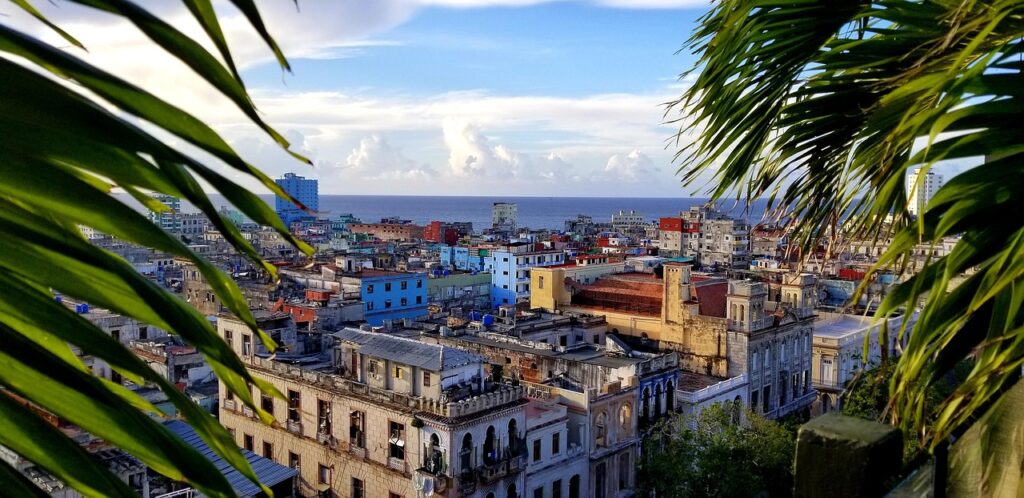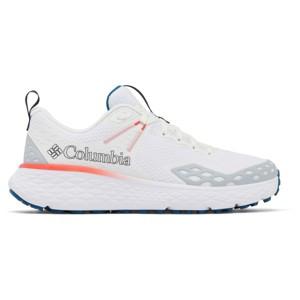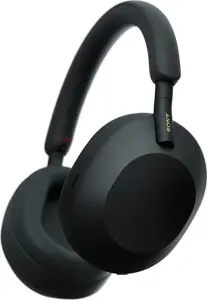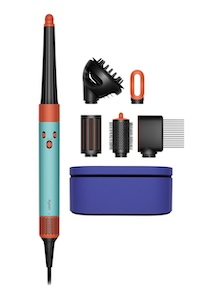
Essential customs rules and
restrictions for entering Cuba
Traveler’s Guide by Parlaxy | Updated: July 31, 2025
Whether you’re flying into José Martí International Airport in Havana, arriving by cruise ship, or crossing via one of Cuba’s regional entry points, it’s crucial to understand Cuba’s customs regulations before your trip in 2025.
Cuba enforces strict duty-free limits. Travelers may bring limited amounts of alcohol, tobacco products, and personal items for personal use. High-value electronics, excessive cash, drones, and certain luxury goods must be declared and may be subject to import duties or inspection. Prescription medications must be accompanied by proper documentation.
Be aware that unauthorized drugs, satellite phones, undeclared drones, counterfeit goods, pornography, and politically sensitive materials are strictly prohibited and can lead to confiscation, fines, or denial of entry.
Customs inspections in Cuba are thorough and often random. It’s your responsibility to declare all goods that fall outside the permitted allowance. Even innocent mistakes can lead to delays or penalties, so honesty is key.
Whether you’re planning to explore Old Havana, relax on the beaches of Varadero, or experience the music and culture of Santiago de Cuba, start your Cuban journey right by respecting its customs laws in 2025. Declare accurately, travel responsibly, and enjoy all the rich history, culture, and charm that Cuba has to offer.

Your Essential 2025 Guide to Entering Cuba – Save Time, Avoid Fines, and Travel Stress-Free
Read or save this 2025 Cuba entry guide to avoid delays, unexpected fees, and common border hassles.
| Documents Required for Entry | Tourist Card (Visa) Required for Most Visitors As of 2025, most foreign nationals – including those from the United States, Canada, United Kingdom, EU, Australia, and New Zealand – must obtain a Cuba Tourist Card (often referred to as a “visa”) before arrival. This card is required for tourism and short visits and must be presented at check-in and upon entry. No e-Visa System or Visa-on-Arrival Cuba does not offer an e-Visa or visa-on-arrival for standard tourists. The Tourist Card must be obtained in advance – either through airlines, travel agencies, or Cuban consulates. Travelers arriving without one will be denied boarding or entry. Required Documents for Entry -A valid passport (with at least 6 months’ validity) -A completed and valid Tourist Card -Travel medical insurance, which must include coverage in Cuba (proof may be required) -A return or onward travel ticket -Proof of accommodation or travel itinerary Special Cases and Exemptions Travelers from visa-exempt countries (such as some Caribbean and Latin American nations) may enter without a Tourist Card for short stays. Those with diplomatic, official passports, or long-stay visas (for work, study, or family) must apply through a Cuban embassy in advance. U.S. Travelers must also comply with U.S. government travel restrictions and fall under one of the 12 authorized categories for travel to Cuba. |
| Currency Export and Import Restrictions | None |
| Currency Export and Import Limits by Amount | As of 2025, travelers entering or exiting Cuba with cash or monetary instruments valued at USD 5,000 or more (or the equivalent in other currencies) are legally required to declare the amount to Cuban customs authorities at the point of entry or departure. |
| Restricted Items for Import | up to USD 1,000 (or equivalent) duty-free for non-commercial use. |
| Prohibited Items for Import | -Narcotics and illegal drugs -Unauthorized prescription medications without proper documentation -Firearms, ammunition, explosives, and weapons of any kind -Pornographic materials -Counterfeit goods and pirated products -Satellite phones and communication equipment not authorized by Cuban authorities -Political or subversive materials deemed sensitive by the government -Wildlife products, including endangered species and their derivatives -Drones without prior approval -Hazardous materials and toxic substances -Printed materials or media that violate Cuban laws or regulations |
| Alcohol Import Regulations | Travelers aged 18 and over may bring in up to 3 litres of alcoholic beverages duty-free |
| Alcohol Export Regulations | As of 2025, Cuba does not impose specific restrictions on the export of alcohol for personal use. |
| Tobacco Product Import Regulations | -400 cigarettes, -50 cigars, -250 grams of loose tobacco, -Or a proportional combination of the above (e.g., 200 cigarettes + 25 cigars). |
| Tobacco Product Export Regulations | As of 2025, Cuba does not impose specific restrictions on the export of tobacco products for personal use. |
| Restrictions on Importing Medications and Dietary Supplements | Cuba enforces strict regulations on the importation of controlled substances and medications. Travelers carrying prescription drugs, narcotics, or other controlled medications must obtain prior authorization from Cuban health authorities before arrival. Unauthorized import or possession of these substances is prohibited and can result in confiscation, fines, or legal prosecution. Prohibited Medications Importing unregistered, counterfeit, or banned medicines into Cuba is illegal. Such items will be seized by Cuban customs, and offenders may face penalties under Cuban pharmaceutical laws. Declaration and Required Documentation All medications must be declared upon arrival to Cuban customs. Travelers should carry medicines in their original packaging with clear labels, accompanied by a valid prescription and a doctor’s note specifying the medication’s purpose, dosage, and duration of treatment. This documentation helps facilitate smooth customs clearance. Dietary Supplements and Herbal Products Cuba regulates dietary supplements, herbal remedies, and natural health products to ensure safety. Large quantities or products intended for commercial use without proper authorization or registration may be denied entry or confiscated by customs. |
| Restrictions on Importing Jewelry and Luxury Goods | As of 2025, travelers entering Cuba may bring jewelry and luxury goods for personal use duty-free up to a value of USD 1,000 (or equivalent). Items exceeding this limit may be subject to import duties and taxes. |
| Restrictions on Exporting Jewelry and Luxury Goods | As of 2025, Cuba does not impose specific restrictions on the export of jewelry and luxury goods for personal use |
| Restrictions on Importing Items of Artistic and Historical Value | In 2025, Cuba allows travelers to import items of artistic, cultural, or historical value for personal use, but these are subject to strict regulations. All such items must be declared to Cuban customs upon arrival. Importing antiques, cultural artifacts, or objects protected under Cuban heritage and cultural preservation laws may require special permits or official documentation proving legal ownership and provenance. Cuba enforces these rules to prevent the illegal trade and export of nationally significant cultural property. Certain items of high historical or cultural importance may be restricted or prohibited from import to protect Cuba’s cultural heritage. Failure to declare or provide proper documentation can result in fines, confiscation, or legal action. |
| Restrictions on Exporting Items of Artistic and Historical Value | Export Prohibited for Antiques: The export of antiques is prohibited in Cuba, even if they are not part of the national heritage. Authorization Required for Other Items: For other artistic or cultural items, travelers must obtain prior authorization from the Cuban Ministry of Culture. This process typically involves obtaining a certificate from the Registry of Cultural Assets confirming that the item is not part of the national patrimony and providing proof of legal ownership and provenance. Restrictions on Exporting Works by Deceased Artists: Exporting works by deceased Cuban artists requires additional documentation to confirm the item’s authenticity and legal ownership. Customs Declaration: All items subject to export must be declared to Cuban customs authorities. |
| Restrictions on Importing Pets | Travelers bringing pets or animals into Cuba in 2025 must comply with strict import regulations to ensure animal health and biosecurity. Import Permit A veterinary import permit issued by the Cuban Ministry of Agriculture is mandatory for all animals entering Cuba. This permit is typically valid for a limited period and must be obtained prior to arrival. Microchip Requirement All pets must be implanted with an ISO-compliant microchip for identification. Tattoos are not accepted as a form of permanent identification. Vaccinations and Health Certificates Pets must have a valid rabies vaccination certificate administered at least 30 days and no more than 12 months before arrival. Additionally, a veterinary health certificate endorsed by the competent authority in the country of origin is required. This certificate must confirm that the animal is free from contagious diseases and fit to travel. Arrival Procedures Upon arrival, all pets must be declared to Cuban customs and agricultural authorities. A government veterinarian will inspect the animal and review all documentation. If any signs of illness or concern arise, pets may be subject to quarantine or further veterinary examination at the owner’s expense. Other Animals For importing other pets such as birds, reptiles, or rodents, additional specific health certificates or permits may be required. It is recommended to consult with a licensed veterinarian in the country of origin and Cuban authorities well in advance to ensure all requirements are met. |
| Restrictions on Exporting Pets | Travelers intending to export pets from Cuba must adhere to the following regulations: Export Permit: Obtain a veterinary export permit from the Cuban Ministry of Agriculture. This permit is typically valid for a limited period and must be secured prior to departure. Microchip Identification: Ensure that the pet is implanted with an ISO-compliant microchip for identification purposes. Vaccinations and Health Certificate: The pet must have a valid rabies vaccination certificate administered at least 30 days before departure. Additionally, a veterinary health certificate issued by a licensed veterinarian in Cuba is required, confirming the pet’s fitness for travel and freedom from contagious diseases. Parasite Treatments: Administer internal and external parasite treatments as recommended by the exporting country’s regulations. Destination Country Requirements: Comply with the import requirements of the destination country, which may include additional vaccinations, health certificates, or quarantine procedures. Customs Declaration: Declare the pet to Cuban customs authorities and present all necessary documentation for inspection. |
Latest news – customs rules, travel alerts & more
Earn while traveling with Parlaxy
Connect with a shopper and deliver for a fee
Parlaxy Wiki is a customs guide designed for travelers who prepare smartly. We’ve gathered all the latest information by 2025 so that the Parlaxy community has access to up-to-date customs rules and restrictions for different countries, as well as insights into popular destinations and travel tips for exploring various corners of the world. Discover the world with Parlaxy Wiki!
Parlaxy connects those who need to purchase items from another city or country with travelers planning trips to those destinations. Parlaxy is not only a convenient platform where buyers can order products from anywhere in the world and travelers can earn by delivering goods along their travel routes—it’s also a reliable source of current travel information worldwide.
Create an order if you’re shopping, or create a trip if you’re ready to earn while traveling!







